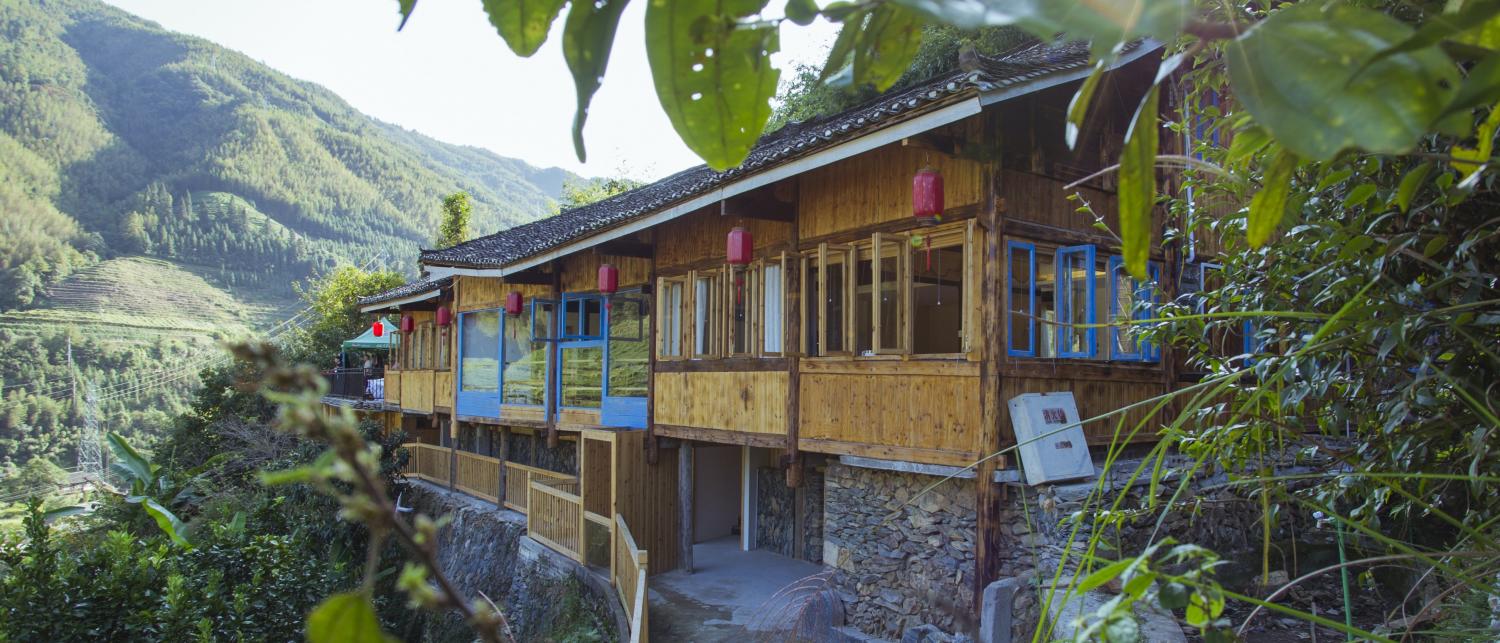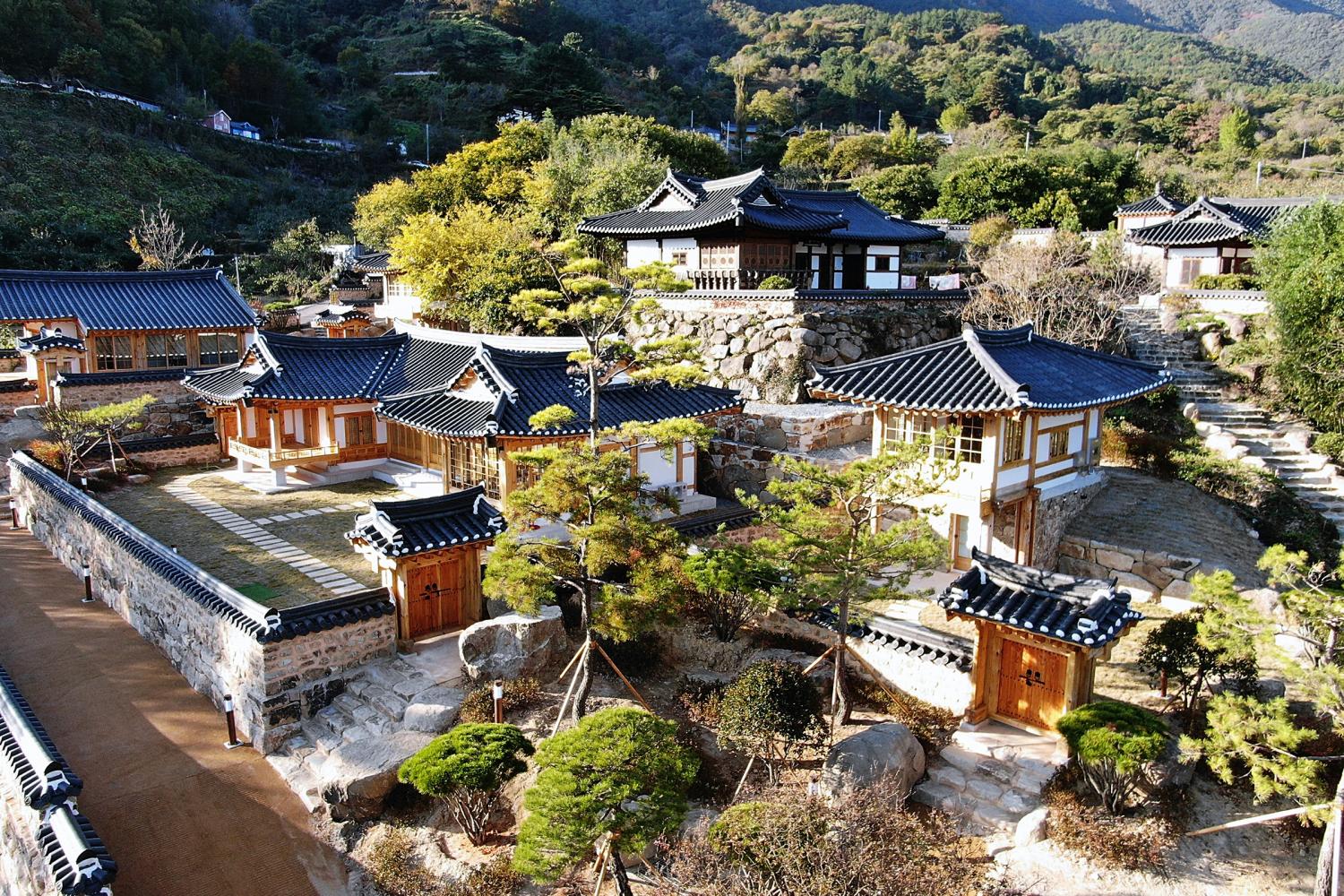What are you afraid of the most when travelling off the map? For most people, lack of security and accessibility probably top the list. With world tourism growing exponentially on the back of cheap flights, and GPS making it easy for anyone to find their destination, getting away from tourist traps is growing more popular in Asia.

Twelve million guests checked into Airbnb-listed accommodation in off-the-beaten-track destinations in Asia Pacific in 2018, an increase of 70% from 2017. LIN SIYU
According to the latest Mastercard Global Destination Cities Index, Bangkok, Singapore, Kuala Lumpur, Tokyo and Seoul were the five most visited cities in Asia Pacific by international overnight visitors between 2018 and 2019. These are not the places you want to go if you want to stay off the radar. You may be sick of the traffic, pollution and noise, or maybe you've been there and loved it, but now you want to try something new.
"There is so much out there, and the market is so big and divided that it's really up to personal choice," Willem Niemeijer, CEO of Yaana Ventures, a Bangkok-based sustainable tourism investment group, told Asia Focus.
"It's also a landscape of buyer beware," he added, pointing out a concern for travellers who also want off-the-beaten track accommodation. "The same apartment that is on one platform may be available on another platform at a fraction of the price."
Off-the-beaten-track travel is booming among millennials, many of whom are looking for experiences that allow them to access local knowledge and come into personal contact with local people and nature, says Mich Goh, head of public policy for Southeast Asia at Airbnb.
"Healthy travel is increasingly in demand and on the rise," she said in a presentation at the Digital Thailand Big Bang seminar in Bangkok last year. "As travel continues to grow throughout the globe and in Asia Pacific, we know that over-tourism is a challenge that is very real, and it is happening in many cities."
Airbnb is among the online platforms that have revolutionised travel in the past decade or so. Established in 2008, it now has 7 million accommodation listings in more than 100,000 cities, with an average of 2 million stays per night. In Asia Pacific it crossed one million listings last year. More than 100 million guests have checked into an Airbnb property in the region, providing hosts with earnings of around US$10 billion, the company said.
"Cities are becoming overcrowded, over-congested, and this is affecting the livelihood and the quality of life for the residents of that city," said Ms Goh. "That is why it is important to pursue a healthier and more sustainable form of travel that does not just focus on major cities, while dispersing the benefits of travel to other parts of the country."

"People are extremely interested in going to smaller destinations that may not have typically experienced the benefits of travel before," says Mich Goh, head of public policy for Southeast Asia with Airbnb. AIRBNB
Healthy travel has five key characteristics. The first is that it has to be very local. Second is extreme authenticity. The third factor is that it should represent a certain diversity of experiences. Fourth, it should be inclusive for everyone, and finally but most importantly, it has to be sustainable for the destination to retain its attractiveness for years to come.
According to a report commissioned by Airbnb, over 12 million guests in Asia Pacific checked into its listings in non-mainstream destinations in 2018, representing growth of 70% year-on-year for the segment.
"This remarkable growth is showing that people are extremely interested in going to smaller destinations that may not have typically experienced the benefits of travel before," Ms Goh noted.
"This is the key point since for a long time now, when you look at the travel industry, a lot of the economic benefit has flowed just to big cities in a country, while the smallest cities and emerging destinations have not really kept up with these benefits."
According to Ms Goh, Airbnb has witnessed "very strong" growth in travel to emerging destinations throughout Asia Pacific. Travel to emerging destinations in China saw 179% year-on-year growth in visitor arrivals in 2018. A similar pattern was seen in the Philippines, Malaysia and South Korea, with growth doubling in the same period.
In Thailand, the number of Airbnb guest arrivals to emerging destinations grew by 53%. Popular choices included Hat Yai, Trang and Sala Dan (Krabi) in the South, along with Chiang Rai and Buri Ram in the North and Northeast.
Thanks to its inclusion on the MotoGP World Championship circuit since 2018, Buri Ram has seen a dramatic rise in visitor arrivals. In fact, the province ranks third on Airbnb's list of top trending destinations for 2020, after Milwaukee in the United States and Bilbao in Spain. Other Asia Pacific destinations on the list include Sunbury in Australia (4), Xi'an in China (6), Tokyo (17) and Kerala state in India (20).
According to the company, Buri Ram saw a 383% year-on-year increase in bookings. Apart from MotoGP, the city is home to Buriram United football club and it hosts an annual marathon at the Chang International Circuit.

In the travel industry, delivering on promises isn’t good enough. It’s about exceeding expectations
Willem Niemeijer,
CEO of Yaana Ventures SUPPLIED
Airbnb has been working with B-STAY, a Buri Ram-based homestay provider, since the first MotoGP race was staged in 2018; the third edition will be held in March this year. The company is also bullish on Saraburi province as an emerging destination as it's not too far from Bangkok and has rich farm and food offerings.
B-STAY said in September that it had 148 homestay members, up from 65 a year earlier. The successful partnership is important for Airbnb since the Thai government has yet to legalise the home-sharing business in the country.
"Buri Ram largely encourages travel and tourism into the province through sports tourism or through hosting large sporting events and that is the trend that we are seeing across Asia Pacific as well," Ms Goh said. "So increasingly, large events are now taking place outside of big cities."
One of the challenges, however, is that many secondary destinations lack the accommodation infrastructure to welcome large groups of guests coming in for major events.
This is where Airbnb saw an opportunity. For the MotoGP in Buri Ram last October, it received 430 bookings, double the number of a year earlier, with an average stay of three nights during the event. One-quarter of the guests were Thais and others came from Australia, India, France, Britain and the US.
The 2018 Winter Olympics in Pyeongchang, South Korea provided another good example of how a secondary destination can meet demand through the hosting platform. Airbnb hosts in the county, with a population of around 43,000, accommodated 15,000 guests and earned around $2 million during the Games.
Another trend that Airbnb has been witnessing is that more and more seniors and women are becoming hospitality entrepreneurs. Seniors are the fastest growing host segment in Thailand, with some 1,500 seniors welcoming 52,000 guests in 2018 with a combined income of 300 million baht.
Fifty-three percent of Airbnb hosts in Thailand are female. They welcomed 775,000 guests in 2018 and earned over 2.8 billion baht doing it.
"Increasingly, more communities that in the past were not involved in tourism are becoming part of tourism activity," Ms Goh said. "Clearly, this is an opportunity to drive tourism in a way that has benefits for the country and we believe that in order to do so, we need to be working in partnership with communities and governments."
So far, the home-sharing platform has been working with the Department of Local Administration and the Government Savings Bank in Thailand to promote its business model, with 740 local homestays available for booking on the Airbnb app. Apart from Buri Ram and Saraburi, other provinces that are becoming popular include Ubon Ratchathani, Roi Et and Rayong.
In India, the company is working with the Self Employed Women's Association (SEWA) by helping its members become hosts. One member who became an Airbnb host is now earning 30,000 rupees ($420) per month, compared with 45,000 rupees per year that she normally earns through farming.

Airbnb is forming partnerships with less well-known destinations across Asia, such as Hadong County in Gyeongsang province of South Korea, where rustic countryside charm is highlighted. Supplied/Airbnb
PLATFORM PROBLEMS
Apart from turning to homestays and home-sharing apps, travellers who like to go off the beaten path can also look for hotels on booking platforms. But this has become a minefield for consumers in recent years. Where can you find the best one? And is cheapest always best?
"There is so much confusion about who offers the lowest price on hotels that nowadays the hotels themselves are offering guarantees of the lowest rate," Mr Niemeijer of Yaana Ventures told Asia Focus.
"Many travellers trust the verdict given by users they do not know over expert advice, giving rise to many, many rating sites, further clouding objectivity."
With technology that can sift through large amounts of data and present it in a way that makes sense, travel platforms are seeking to replace tour operators and travel agents. According to these platforms, the only differentiating factors between hotels are price, star rating and facilities, observes Mr Niemeijer. This may be true for the time-poor business traveller on a specific budget, but not for the leisure traveller, he says.
"For them it's all about the experience. Choosing from a staggering 1,396 hotels in Bangkok doesn't help the experience seeker," he wrote in an article on his personal LinkedIn page.
"It makes little sense, then, to take the online platform model and try to force it onto travel experiences that combine hotels, guided tours and recommended 'do-it-yourself' journeys. It doesn't work because local, authentic encounters and personalised attention are still the measure of a good holiday on the ground," he added.
More travel platforms are approaching destination management companies with offers to replace traditional clients such as tour operators and travel agents with the "opportunity" to connect to travellers directly. But anyone who takes up that kind of offer is making an "essential mistake", Mr Niemeijer maintains.
"These online platforms do not add value for the customer," he said. "They merely offer a ton of products for them to choose from. And unlike hotel booking platforms, it is very hard or even impossible for the holidaymaker to see if they are getting a price advantage."
Delivering the perfect travel product to the informed customer needs a radical rethink, in his opinion. This means that it is "imperative" for tour operators and travel agents to stay on top of local developments in their destinations.
Some operators and agents are already doing this by shifting their product management to trusted suppliers, leaving them to focus on customer needs.
"In the travel industry, delivering on promises isn't good enough. It's about exceeding expectations," Mr Niemeijer said. "That is complicated, as most travel products are used once by clients, then expected again, or a variation of it, in a separate country for next year's holiday."
However, tour operators and their network of suppliers can deliver on this consistency by having a deep understanding of their clients which is built on trust, experience and in-depth local knowledge of the possibilities available.
"The challenge is open for technology to improve on the quality and efficiency this DMC (destination management company) network delivers," he added.
Idan Zalzberg, vice-president of data at the booking platform Agoda, noted that online travel agencies are increasingly using artificial intelligence (AI) to predict what consumers want to see on their screens when they search for accommodation.
"A lot of companies, like Agoda, are starting to go in this direction but there is so much more we can do," he said.
Mr Zalzberg said his company wants to be more trustworthy and less annoying, where the challenge is to learn what the customer wants without being too obtrusive. Getting the relevant information to show the customer is just the start.
After a booking, a customer might want to talk to a representative from the online travel agency they have booked their accommodation with for support or confirmation. Agoda listens in on these chats to learn more about what people need, and uses the information to refine its chatbot services.
"We get these requests which come in all languages that we work in, and one of the biggest challenges that we have is to work with languages that are not that developed in terms of technology," said Mr Zalzberg. "If you want to translate Chinese to English, there are many ways to do it but if we are talking about Korean or Thai, it is much more complicated."
Because Agoda uses its own data and chats to train the model, it can provide much better accuracy in terms of what people are looking for, he added.
With chatbots taking care of the most frequently asked questions, Agoda agents can now deal with more complicated requests from consumers through a 24-hour call centre.